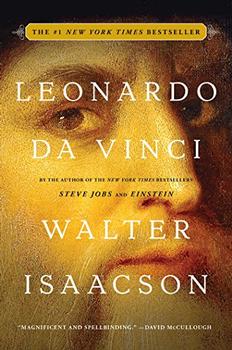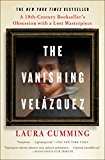Summary | Excerpt | Reading Guide | Reviews | Beyond the book | Read-Alikes | Genres & Themes | Author Bio

A Novel
by Elizabeth LowryElizabeth Lowry’s Thomas Joseph Lynch can hold his own among the best fictional characters. Do we like him? Do we hate him? Is he a trustworthy narrator, a lying blackguard or simply addled? Can we admire his perseverance and determination, or is he so compulsively obsessed that we want to write him off as a crackpot?
That’s just the thing. At the beginning of any novel we all want to like our protagonist. He is, after all, the prism through which we will see the world for the next three hundred-plus pages. And without a doubt, we like Lynch from the get-go. He's smart, well-educated and has a sense of humor. But then he betrays such a cavalier attitude toward the young student with whom he had planned to share a bottle and a quickie that we begin to doubt his integrity. Furthermore, when his flagrant dalliances cost him his job as an art history professor at a New England college, he gives every indication that that damn bottle meant more to him than both the student and the job combined.
That's it then. Lynch likes the sauce. So he’s not perfect and he may not be the most trustworthy narrator. Except. Except there is this missing Bellini painting, a fabled Madonna that is perhaps the artist's final opus, that has suddenly become Lynch's raison de vivre. Having long proclaimed its existence, Lynch decides that since the door of his teaching career has slammed behind him now is the perfect opportunity to hunt the painting – plus certain fame and possible fortune – full-time. Ah, we think, here is something the man may put ahead of his lascivious yearnings for nubile partners and grappa. There is hope for him. At last he may set aside his love of wine and treat this pursuit with the respect a missing Renaissance objet d'art deserves. Maybe.
Maybe not. Because no sooner does he insinuate himself at Mawle, the decaying English country house where he suspects the painting resides, than he begins to fantasize about the mistress of the manor, Anna. Ostensibly he is there to inventory the family's valuable collection of antiques and works of art. Meanwhile he is secretly ransacking every nook and cranny, turning up every loose board, searching for the Bellini. That may be forgivable, but Lynch's reminiscences of his days at Mawle contain apologies to Anna for some unnamed harm he has done her, and we can't help but cynically assume it is sexual in nature. What's more, she serves him all the grappa he can swill.
Anna, it seems, may have motives of her own and plays her cards close to her vest too. But we can't be certain because Lynch's conversations with her and her deplorable mother who flits in and out of the action aren't forthright. Lynch holds back, not wanting to tip his hand and Anna – remember we only know what Anna says through Lynch's alcohol-induced haze – is equally guarded.
Compounding the deepening quagmire of deceit is Lynch's obtuseness. Not only does he miss clues to the Bellini's hiding place, he doesn't see Anna for anything that she truly is. The guy seems a total loser. And yet he's not. Besides, the story isn't about him so much as it is about obsession and the complicated relationships of people – generations of people – who either won't or can't be straightforward with each other.
In the end we do like Lynch but abhor certain aspects of his character. He may not be trustworthy but he is a hell of a storyteller and Lowry's elegant-on-steroids prose (Oxford English Dictionary editor, indeed) does as much to elevate Lynch to best-fictional-character status as do his actions. Crackpot or not (you decide) we would have Thomas Joseph Lynch over for dinner, but likely count the silver afterward.
![]() This review was originally published in The BookBrowse Review in June 2009, and has been updated for the
June 2010 edition.
Click here to go to this issue.
This review was originally published in The BookBrowse Review in June 2009, and has been updated for the
June 2010 edition.
Click here to go to this issue.

If you liked The Bellini Madonna, try these:

by Walter Isaacson
Published 2018
He was history's most creative genius. What secrets can he teach us? The author of the acclaimed bestsellers Steve Jobs, Einstein, and Benjamin Franklin brings Leonardo da Vinci to life in this exciting new biography.

by Laura Cumming
Published 2016
From one of the world's most expert art critics, the incredible true story - part art history and part mystery - of a Velázquez portrait that went missing and the obsessed nineteenth-century bookseller determined to prove he had found it.
Your guide toexceptional books
BookBrowse seeks out and recommends the best in contemporary fiction and nonfiction—books that not only engage and entertain but also deepen our understanding of ourselves and the world around us.